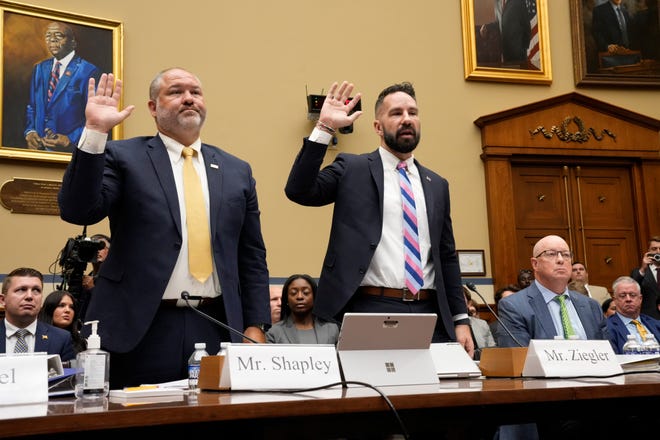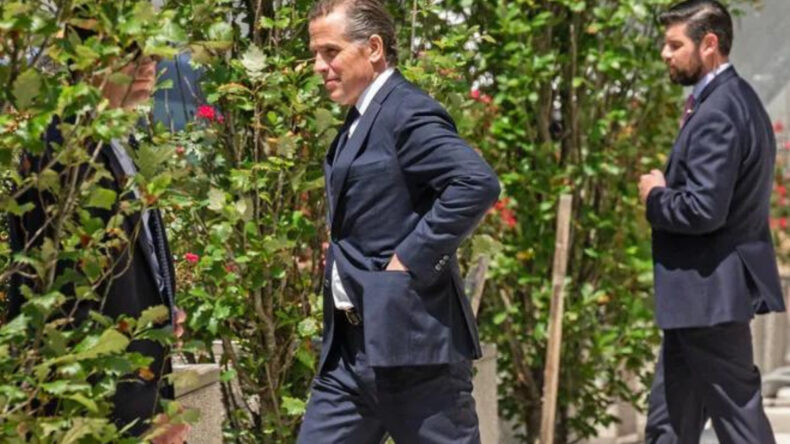In a dramatic court hearing, a plea deal between President Joe Biden’s son, Hunter Biden, and the Justice Department hit a roadblock. The deal was related to tax charges, as Hunter Biden had failed to pay between $1.1 million and $1.5 million in federal taxes before the legal deadlines. The original plea, which included a recommendation for probation, was not accepted by the judge.
Unraveling of the Initial Plea Deal
Before the original plea could be entered, the agreement started to unravel. The judge, District Judge Maryellen Noreika, expressed concerns about linking the tax plea to resolving a felony gun charge. Prosecutors confirmed that the investigation into Hunter Biden was ongoing. After negotiations, Hunter Biden agreed to plead guilty to the two tax charges only, excluding any conduct related to drug use and gun possession. However, the judge was still unsatisfied with the revised deal.
Following the judge’s refusal to accept the revised plea deal, Hunter Biden entered a plea of not guilty for the time being. The judge requested both parties to submit legal briefs explaining the plea deal’s legal structuring within 30 days.
The investigation into Hunter Biden began under the Trump-era Justice Department in 2018. The probe expanded to examine potential violations of money laundering and foreign lobbying laws related to his overseas business dealings. The investigators also looked into Hunter Biden’s unpaid taxes and lavish spending amid a struggle with addiction.
Allegations of Political Favoritism and Whistleblower Claims
Recent allegations from two IRS whistleblowers have raised questions about potential political favoritism in the case. The whistleblowers claim that the Justice Department showed preferential treatment to Hunter Biden, especially during the Trump presidency. However, the DOJ and other senior officials have publicly refuted these claims of politicization.
Republicans have seized on the investigation, using it as part of their broader oversight probes into the Biden family. Rep. Jason Smith, the House Ways and Means Committee chair, urged the judge to reject the plea deal, citing allegations of political interference. GOP members continue to criticize the plea deal, calling it a “sweetheart deal” and insisting on further investigations into the Biden family.

Judge Threatens Sanctions Over Miscommunication
During the court proceedings, there was a legal clash between a top Republican lawmaker and Hunter Biden’s lawyers, accusing them of misrepresentations to the court about their identity. The judge threatened to sanction Hunter Biden’s lawyers over the matter, though they claimed it was an unintentional miscommunication.
The White House emphasized that Hunter Biden is a private citizen, and the case is a personal matter for him. They highlighted that the investigation was handled independently by a prosecutor appointed by former President Trump, and the president and first lady continue to support their son.
Public Reaction and Future Proceedings
Republicans on Capitol Hill expressed satisfaction with the judge’s decision to hold off on the plea deal. They continue to call for more investigations into the Biden family. The case remains under scrutiny, and further developments are expected as legal briefs are submitted and hearings are scheduled.
The plea deal between Hunter Biden and the Justice Department over tax charges is temporarily on hold as the judge raises concerns about the revised agreement. The investigation, involving allegations of unpaid taxes and potential foreign lobbying violations, remains a focal point for Republicans. The judge’s decision to delay acceptance of the plea deal indicates that the legal proceedings are far from over, and further developments are expected in the coming weeks.













